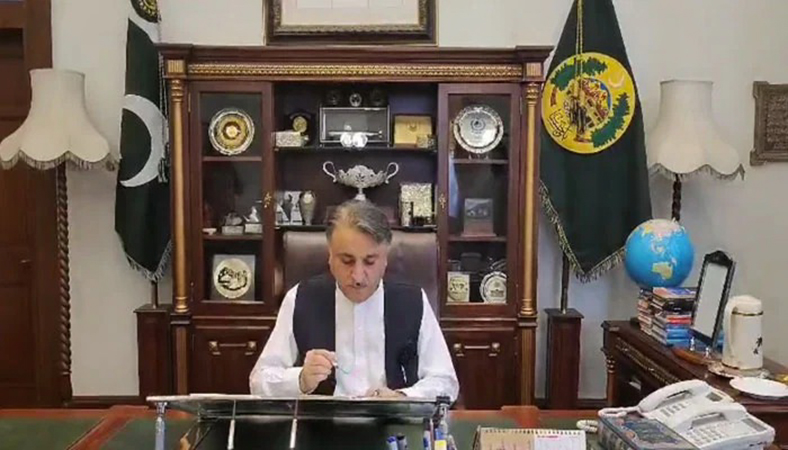 The Balochistan Assembly was dissolved on Saturday after Governor Malik Abdul Wali Kakar signed the summary moved by Chief Minister Abdul Quddus Bizenjo for the dissolution of the provincial assembly, a private TV channel reported.
The Balochistan Assembly was dissolved on Saturday after Governor Malik Abdul Wali Kakar signed the summary moved by Chief Minister Abdul Quddus Bizenjo for the dissolution of the provincial assembly, a private TV channel reported.
“As advised by Mir Abdul Quddus Bizenjo, the Chief Minister of Balochistan and in the exercise of the powers conferred upon me under Article 112(1) of the Constitution of the Islamic Republic of Pakistan 1973, I, Malik Abdul Wali Khan Kakar, Governor Balochistan hereby dissolve the Provincial Assembly of Balochistan, this 12th day of August 2023 at 5pm,” said the notification issued by the Governor House.
After the dissolution of the assembly, the provincial cabinet also stands dissolved. CM Bizenjo will continue to hold the office until the appointment of the caretaker chief minister. Now, CM Bizenjo and Leader of the Opposition in Balochistan Assembly Malik Sikandar will hold consultations regarding the appointment of an interim chief minister.
A day earlier, Sindh Governor Kamran Tessori signed the summary moved by Chief Minister Murad Ali Shah for the dissolution of the provincial assembly just a day before the completion of its five years constitutional term.
After the dissolution, the Sindh cabinet has also been dissolved while CM Murad will continue holding his post till a caretaker successor is not appointed.
Meanwhile, the Punjab and Khyber Pakhtunkhwa (KP) assemblies were dissolved earlier this year in January after Pakistan Tehreek-e-Insaf (PTI) Chairman Imran Khan had issued orders for their dissolution in November last year. On January 20, former KP chief secretary Azam Khan was appointed as the interim chief minister in the province after the provincial government reached an agreement with the opposition. Once the provincial assembly is dissolved, the government will require a caretaker setup, irrespective of whether or not the governor approves the summary undersigned by the chief minister.
Contrary to the practice in other countries, the Constitution of Pakistan stipulates that a caretaker government will have to be sworn in till a new government is elected by the people. Article 224 of the Constitution explains the process of appointment of a caretaker government at the centre and provinces.
Until the formation of a caretaker government, the elected CM will continue his duties for a few days. It is only incumbent speaker of the assemblies, out of all elected representatives, who will hold their position until the newly-elected lawmakers take an oath and elect his replacement. For the formation of a caretaker government, CMs write to the leader of the oppositions in assemblies, within 48 hours of the dissolution of the assembly, seeking three names for the caretaker chief minister and will suggest three names himself.